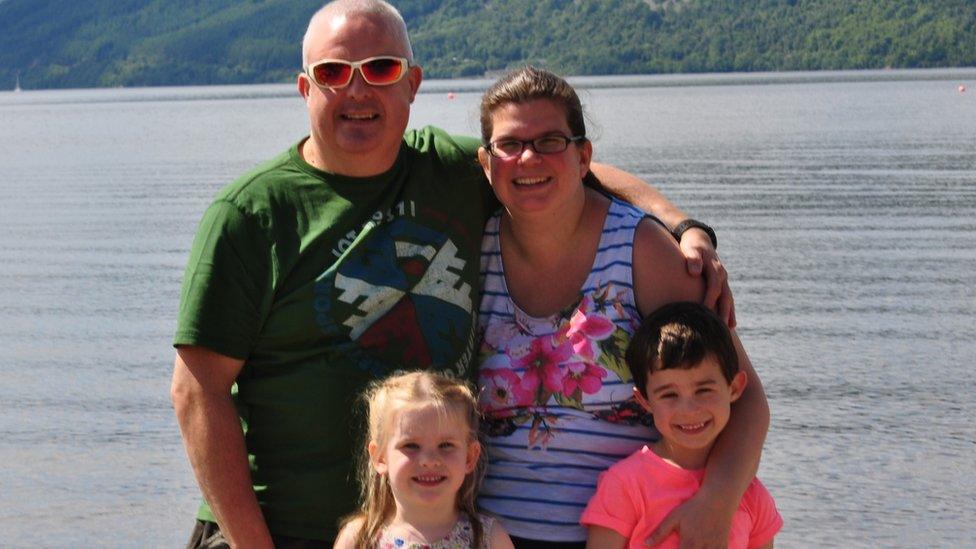Sign language course at UWE Bristol 'could save lives'
- Published
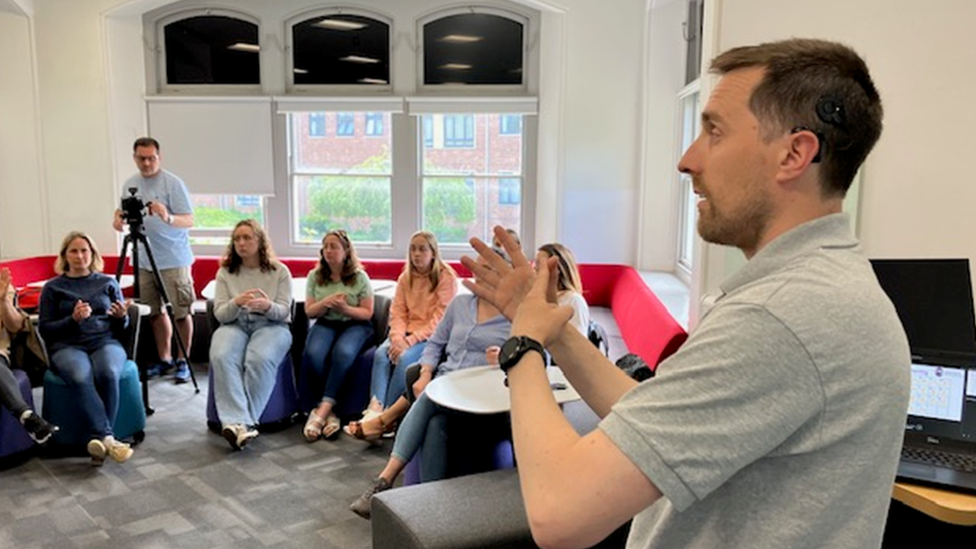
Mark Gill from the Bristol Centre for Deaf puts paramedics through their sign language paces
A university's move to train up future NHS workers in sign language could help save lives, experts say.
More than 240 students have taken the course at the University of the West of England(UWE) in Bristol since January.
The British Deaf Association (BDA) recently called for mandatory training of frontline workers after paramedics were unable to tell a deaf woman her husband had died.
The courses are led by members of the deaf community.
The BDA has said deaf people face "life-threatening communications failures" on a daily basis.
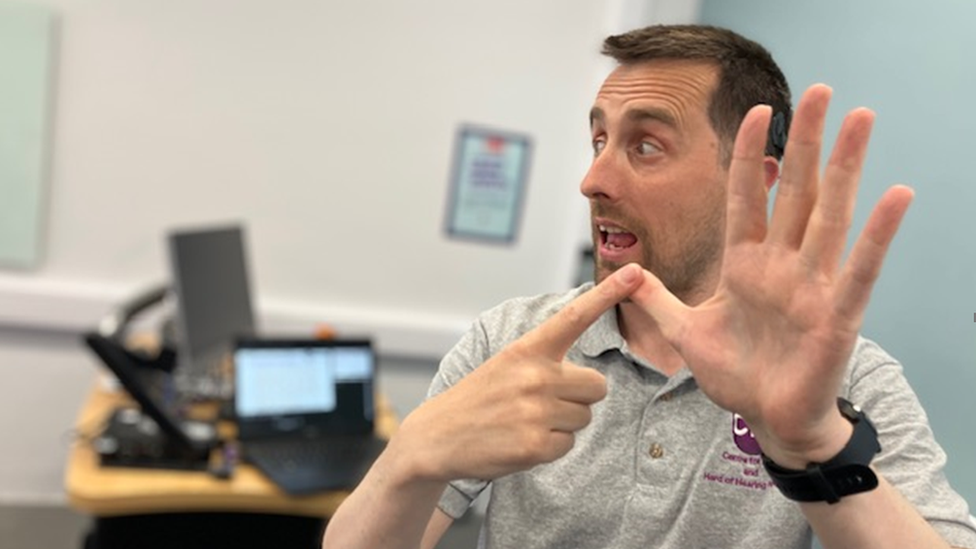
Signing Instructor Mark Gill says raising awareness is a key aspect in improving communication
Since the course started in January sign language instructor Mark Gill has trained 240 student nurses, paramedics, midwives, radiographers, optometrists, occupational therapists and physiotherapists.
UWE's Bristol's British Sign Language (BSL) society funds the training and courses are delivered by the Centre for Deaf and Hard of Hearing People, a Bristol-based non-profit organisation.
"We wanted to show how much of a difference basic training can make to deaf and hard of hearing patients and to healthcare professionals on the front line," said Mr Gill.
Mr Gill, who is himself deaf, knows from personal experience the importance of clear communication in a crisis.
He went to his GP with one of his children and found there was no interpreter to help him.
He said that, despite taking a long time to write things down and explain them, a potentially dangerous prescription was given due to a misunderstanding.
He said: "Once we had finished the appointment arriving home we realised it was the wrong medication completely.
"So we had to return to the GP and complain about the mishap that had happened.
"That can be one of the challenges for me and also the GP because they don't always know how to remove that barrier, so raising awareness is a key aspect in this."
Justin Smith CEO for the Centre for Deaf and Hard of Hearing (HOH) knows of at least one case where a deaf person in Bristol was mistakenly told they had been diagnosed with a terminal illness.
"And that was a terrible mistake that happened," he said.
"They thought it was one diagnosis and it was something completely different.
"It wasn't something life-threatening but what they understood it to be was something life-threatening.
"What they understood it to be was completely the wrong diagnosis and it caused them lots of anxiety and depression thinking they had been given the diagnosis and that's because they couldn't understand what the doctor was saying."
'Communication is critical'
Second year UWE Bristol paramedic student and President of the BSL society, Daniel Hunt, said that approximately nine million people in the UK are deaf or hard of hearing.
"Currently, frontline healthcare workers aren't given basic British Sign Language and deaf awareness training as standard," he said.
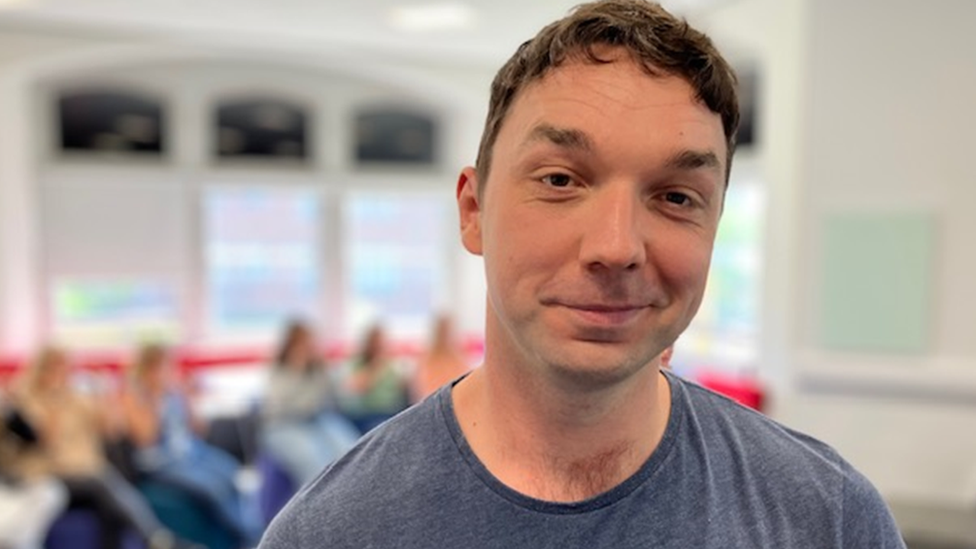
Daniel Hunt said workers having even basic training makes a 'huge difference'
"Effective communication is critical in healthcare settings, so this is a gap we wanted to address.
"We wanted to show how much of a difference basic training can make to deaf and hard-of-hearing patients and to healthcare professionals on the front line.
"A little bit of communication and awareness can go a long way, especially in emergency situations.
"Just being able to ask a person's name and ask if they need help could make the vital difference before a fully qualified interpreter can be organised.
"It can literally be a matter of life and death."
'It dispels myths'
Kyla Boulton is a learning disability nurse with bilateral hearing loss who uses hearing aids.
She said the courses would help improve general knowledge and awareness about deaf and hard of hearing people.
"Promoting inclusion rather than driving exclusion, they have dispelled some myths and common misconceptions that people have about HOH/Deaf people.
"These are mainly that it's only older people who are affected.
"Learning health-related signs and asking someone's name, means that people are included.
"I have noticed that people are more patient and prepared to repeat things, and people have been quite inquisitive to really understand how my HOH affects me and what they can do differently to support."

Follow BBC West on Facebook, external, X, external and Instagram, external. Send your story ideas to: bristol@bbc.co.uk, external
- Published23 October 2023
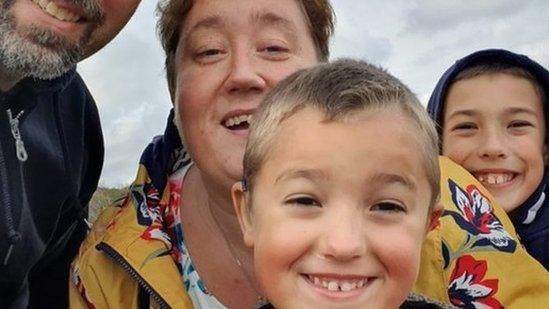
- Published6 April 2023
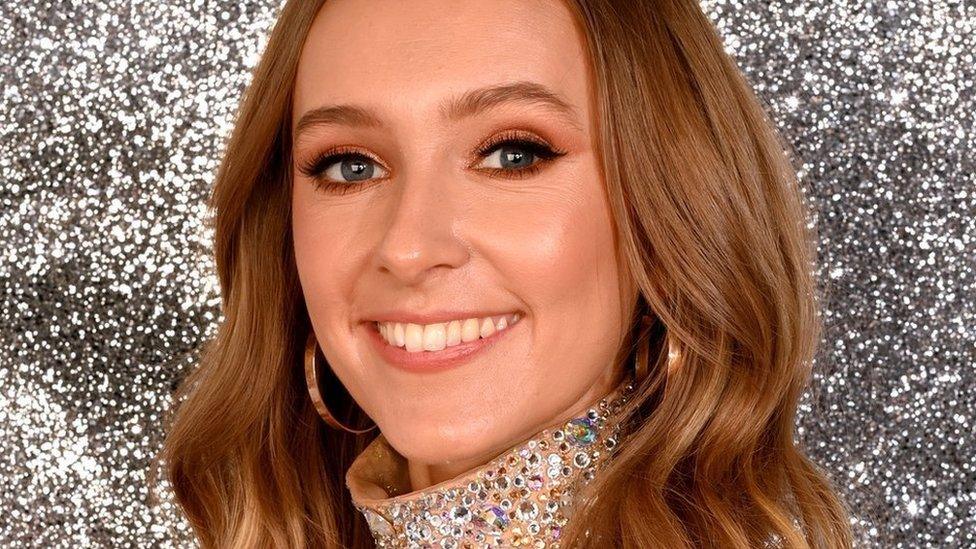
- Published2 April 2023
